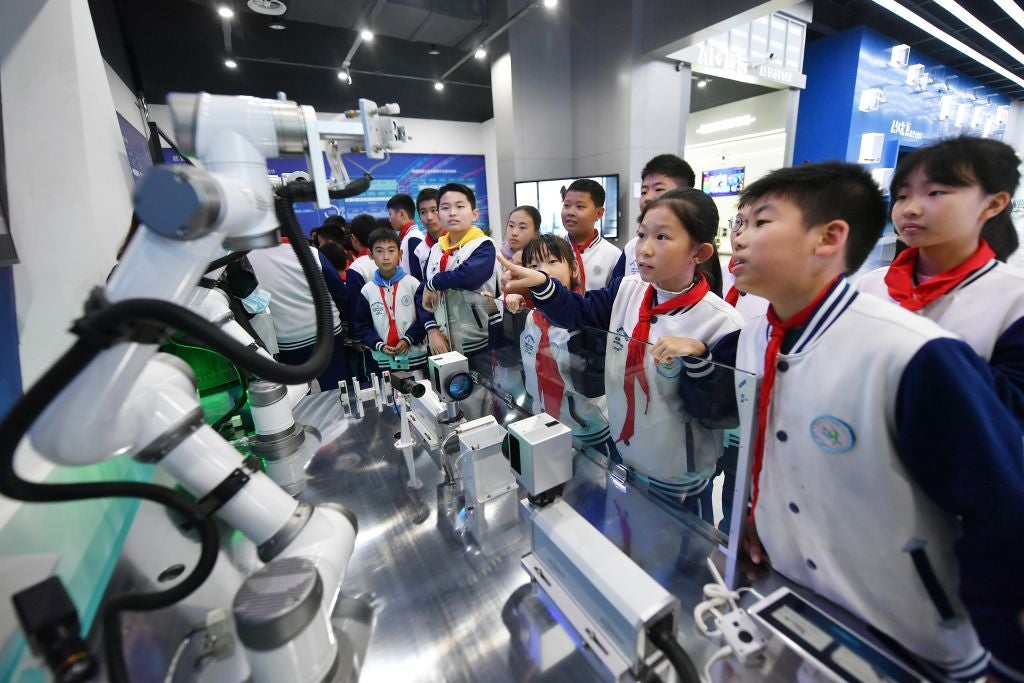
As of June 2025, China’s artificial intelligence (AI) sector is experiencing rapid growth, driven by strategic government initiatives, significant investments, and a focus on self-reliance amid global tech tensions. Here’s an overview of the key developments:
🇨🇳 Strategic Vision and Policy Initiatives
China aims to become a global leader in AI by 2030, with the “Next Generation AI Development Plan” setting the roadmap. This plan emphasizes AI as a core driver of economic transformation by 2025 and includes substantial investments in research, talent development, and industry applications.
In January 2025, the Bank of China announced a five-year plan to support the AI industry with a minimum of one trillion RMB (approximately $138 billion), highlighting the government’s commitment to fostering AI advancements.
🧠 Technological Advancements and Industry Growth
Generative AI and AI Agents
Chinese companies are making significant strides in generative AI and autonomous agents. For instance, Baidu’s Ernie Bot has evolved to version 4.5, offering enhanced reasoning capabilities. Startups like MiniMax have introduced text-to-video models, positioning themselves as competitors to global leaders. (restofworld.org, en.wikipedia.org, en.wikipedia.org)
The adoption rate of generative AI in China is notable, with 83% of professionals reportedly using such technologies, surpassing the global average. (taskvirtual.com)
AI Hardware and Chip Development
In response to U.S. export restrictions, Chinese tech giants like Alibaba, Tencent, and Baidu are investing in domestic AI chip solutions. Huawei’s Ascend chips are gaining traction, although transitioning from Nvidia’s CUDA to Huawei’s CANN presents technical challenges. (ft.com)
Meanwhile, Nvidia is developing the B30 chip specifically for the Chinese market, designed to comply with U.S. export controls while supporting AI model training through high-powered clusters. (nypost.com)
🌐 Global Outreach and Digital Silk Road
China is expanding its AI influence globally through the Digital Silk Road initiative, aiming to develop a global digital ecosystem centered around Chinese technology. This includes investments in e-commerce, finance, and industrial sectors across participating countries. (eastasiaforum.org)
📊 Economic Impact
By April 2025, the value of China’s core AI industry reached nearly 600 billion yuan (about $83.45 billion), reflecting the sector’s rapid expansion and its significance to the national economy. (economymiddleeast.com)
China’s concerted efforts in AI development, from policy support to technological innovation, underscore its ambition to lead in the global AI landscape. The nation’s focus on self-reliance and strategic investments positions it as a formidable player in the ongoing AI revolution.
